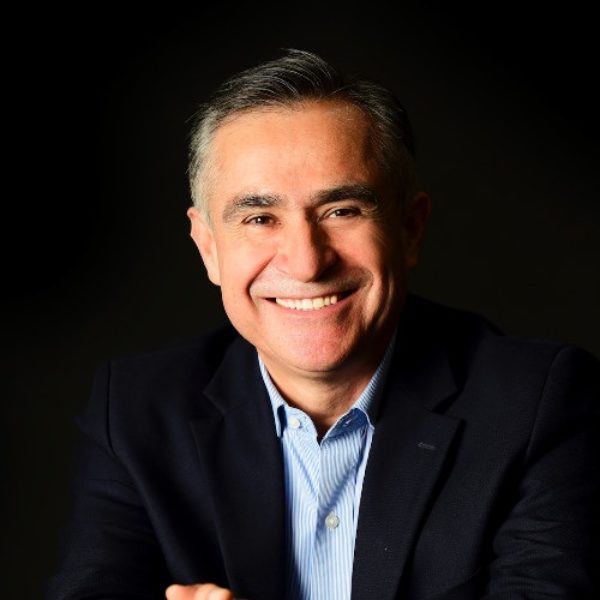
Tecmilenio University in Mexico was experiencing a decline in enrollment. Leadership analyzed the needs of the university community, and based on those findings decided to reposition the university around well-being and purpose in life. Héctor Mauricio Escamilla Santana leads the university and sat down with us to talk about how a focus on purpose has changed their entire culture.
How has Tecmilenio repositioned itself around well-being?
Hector Escamilla Santana: Tecmilenio is a private nonprofit university with 31 campus locations in Mexico. In 2012, we experienced a decline in student enrollment, and we knew we needed to make changes. We initiated a disruptive innovation process focused on the needs of our stakeholders - the students, parents and industry, as well as future trends.
We realized businesses hire people based on competencies - it’s less important what major they had, but graduates need to be able to fulfill the requirements of the position. Parents of students appreciate when their sons and daughters have jobs upon graduation. For students, universities exist to prepare them to have a successful life.
Success in life should not be associated only with professional achievements or wealth - we believe that people who have and develop their purpose in life are happier. With that in mind, why not design a university that focuses on well-being and purpose?
We designed a new university model where students learn well-being principles and practices, customize their own bachelors by choosing 40% of their courses and participate in a competence education model that translates into the development of highly demanded skills and high employability.
Our vision as a university is to prepare positive people with purpose in life and competencies to achieve it. That was the pivotal moment in 2012 when we were redesigning the university. We learned from research about well-being and happiness. Since then, we have been using well-being theory and practices for all students, faculty and staff.
Well-being and purpose became our differentiator. Purpose in life is at the center of Tecmilenio´s well-being ecosystem. Everything we do - training of faculty and staff, student curricula and activities as well as our facilities – is aligned embracing purpose, well-being theory and practice. One hundred percent of our students take a course in well-being in the first semester. They also take a course in positive organizations prior to graduation to learn that how well-being makes a difference in business.
How does your ecosystem support people from all walks of life in the university?
We have a network of tutors and mentors at the university. We train them carefully. If they believe that a student needs additional help, they recommend that the student sees a mental health professional.
I like to think that working on students’ character strengths and providing a supportive ecosystem with theory and practice of positive emotions, positive relations, engagement, achievement, wellness and mindfulness practices provide well-being skills to cope with the challenges students face. We never made the promise that this new ecosystem at Tecmilenio would be a magic pill for stress or mental illness. However, we believe we are enabling people with skills to understand their character strengths using positive psychology as well as other well-being theories and practices.
For example, we know our students have anxiety and stress due to social media. This is often due to comparing themselves to others. We hope we’re providing skills to help with that, but we don’t have a way to measure that yet.
What does purpose in life mean to you?
We defined purpose in life as the core motivation which inspires and guides you through your life. We believe that if you have a purpose, that will be the driving force against all mishaps in life. At Tecmilenio, we train students with the skills to understand their character strengths and how to focus on their strengths to be their best selves as well as building synergies with the characters strengths of others. This can help them beyond their time at the university.
Personally, I see my purpose is to help others have a better life - to help them become more productive and to flourish. It’s exciting to me when students are talking about their purpose in life. When I visit each of our 31 campus, students introduce themselves this way, “my name is __, my character strengths are __ and my purpose in life is __.” Our students have embraced learning about and developing their purpose. Our hope is that the skills they learn here stick for life so that alumni can become agents of positive change in our world.
What are some of the biggest challenges for scaling this type of university?
We want to do more studies to make sure that we are using the right methodology and show that our ecosystem is working. In terms of scaling to other universities, we must partner with scientists in centers like the Center for Healthy Minds, and build a strong well-being culture because the challenge is that faculty, staff and leadership must “walk the talk” within our ecosystem of well-being.
We believe that the most important skills in the 21st century are well-being and purpose in life. These skills will pull all other skills you may need to develop during your life. I feel that this should be a core belief in educational institutions globally. Well-being doesn’t just benefit yourself, but it also helps the companies and other people you work with. Businesses are commonly interested in well-being skills like and positive leadership and how improves their organization.
We are very happy because we experimented with this at Tecmilenio, and now we’re influencing our sister University “Tecnologico de Monterrey” as well as other Universities around the globe.






